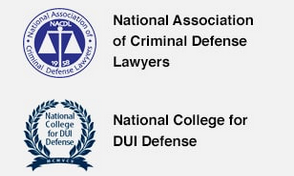Intent Requirement in Burglary Cases
Property Crime Lawyer Representing Defendants in the Phoenix Area
There are three degrees of burglary in Arizona, with first-degree burglary being the most serious. Burglary can take place in connection with a home, a structure, or a motor vehicle. If you are being investigated for burglary, you may be wondering about the intent requirement in burglary cases. At the Law Offices of James Novak, our Phoenix burglary defense attorney is a former prosecutor who puts insights gleaned from his prior position to work for the accused. We are committed to providing a strong, aggressive defense to clients charged with burglary or other property crimes.
Understanding the Intent Requirement in Burglary Cases
Third-degree burglary is a class 4 felony prohibited under Arizona Revised Statutes section 13-1506. The prosecutor will need to show beyond a reasonable doubt that (1) you entered or stayed illegally in a nonresidential structure or a fenced yard, (2) intending to perpetrate a theft or any felony inside. Alternatively, the prosecutor will need to show that (1) you entered any part of a motor vehicle, (2) by using a manipulation key or master key, (3) intending to perpetrate a felony or theft inside the vehicle.
A second-degree burglary is a Class 3 felony and also includes an intent requirement. The prosecutor must prove beyond a reasonable doubt that you entered or stayed in a residential structure with the intent of perpetrating a theft or felony. Meanwhile, a prosecutor trying to prove first-degree burglary must prove beyond a reasonable doubt that you perpetrated second- or third-degree burglary (including the intent requirement), and you also used a firearm, explosive, or deadly weapon.
Some people are surprised to learn that you do not need to actually take something to be charged with burglary. Simply having the intent to steal something or commit some other felony inside a structure, motor vehicle, or home can result in a conviction. Intent is a critical element in a burglary charge. If the prosecutor is not able to prove this element beyond a reasonable doubt, they will not be able to win the case. Sometimes it is possible to argue in defense of burglary charges that there was a lack of intent to commit a felony. Through this defense, your lawyer may be able to argue that you were somewhere that you did not have permission to be, but you did not have the intent of perpetrating a felony. It may be possible to negotiate a plea deal for trespassing instead, or it may be possible to raise a reasonable doubt at trial with the jury.
What does the law mean by “intent” in this context? Under A.R.S. § 13-105(10)(a), someone acts intentionally to do something when that person’s objective is to cause that result or engage in that conduct. Intent is a question for the jury that can be inferred from the facts and circumstances revealed by the evidence. The prosecutor does not need to submit direct evidence to the jury on intent, such as your admitting that you were at the victim’s home to steal a television or commit a rape.
Your possession of stolen property in and of itself may not be enough to secure a conviction for burglary. However, courts have held that the unexplained possession of recently stolen items is a circumstance from which the jury can infer someone’s guilt, as long as there is at least slight corroborative evidence. For example, in one case, padlocks used to secure burglarized buildings were found in the defendant’s rented storage facility, and locksmith paraphernalia was found in the defendant’s trailer. The possession of the locks was found to be enough circumstantial evidence to sustain a finding that the defendant had entered, and the possession of the paraphernalia was enough to sustain a finding of intent, based on the defendant entering through surreptitious means.
Consult a Knowledgeable Theft Crime Attorney in Phoenix
Burglary is punished harshly in Arizona. If you want to know more about the intent requirement in burglary cases, you should consult an experienced lawyer who can explain how it may apply in your situation and provide a vigorous defense. James Novak represents defendants throughout the Phoenix area, including in Mesa, Tempe, Chandler, Gilbert, Scottsdale, and other cities in Maricopa County. Contact James Novak at (480) 413-1499 or via our online form.






















